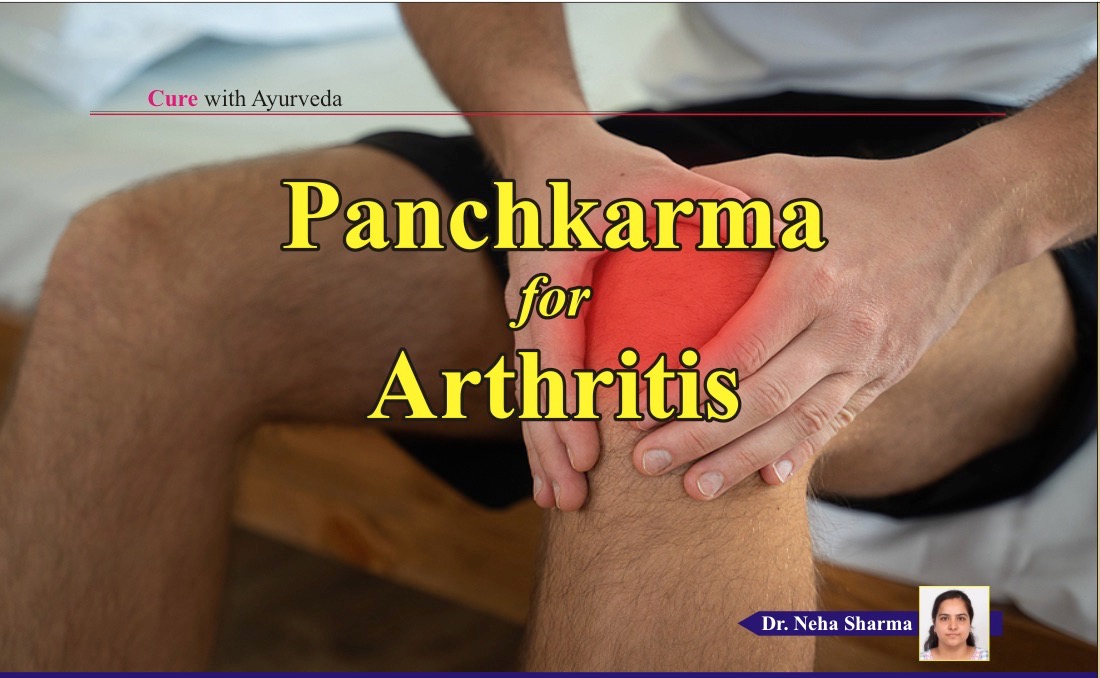Rheumatism, a term traditionally used to describe various painful conditions of the muscles, tendons, joints, and bones, is now more commonly referred to as Rheumatoid arthritis in medical terminology.
Rheumatism, a term traditionally used to describe various painful conditions of the muscles, tendons, joints, and bones, is now more commonly referred to as Rheumatoid arthritis in medical terminology. It is an autoimmune disorder characterized by chronic inflammation, pain and swelling in the joints. While conventional medicine offers various treatments, many people seek complementary therapies to manage symptoms and improve their quality of life. One such holistic approach is Panchakarma, an ancient Ayurvedic treatment, aims to eliminate toxins from the body, strengthen the immune system and restore balance to the body and mind. The five primary procedures of Panchakarma are:
1. Vamana Therapeutic Emesis
Induced vomiting to eliminate toxins from the upper gastrointestinal tract.
2. Virechana Purgation
Use of laxatives to cleanse the bowel and remove toxins from the lower gastrointestinal tract.
3. Basti Enema Therapy
Introduction of medicinal substances into the colon through the rectum to cleanse and rejuvenate.
4. Nasya Nasal Administration
Administration of medicated oils or powders through the nose to cleanse the sinuses and head.
5. Raktamokshana Bloodletting
Controlled removal of small amounts of blood to eliminate toxins and improve circulation.
Panchakarma and Rheumatism
Ayurveda views rheumatism primarily as a Vata disorder, with imbalance in the body's Vata dosha leading to joint pain and inflammation. Panchakarma helps manage it through a combination of detoxification, dietary modifications, herbal remedies and lifestyle changes. Here’s how each component of Panchakarma can benefit those suffering from rheumatism:
1. Detoxification
The primary aim of Panchakarma is to detoxify the body. Rheumatism is often associated with the accumulation of Ama i.e. toxins in the joints. Procedures like Vamana, Virechana and Basti help in expelling these toxins, reducing inflammation and pain.
2. Balancing Doshas
Panchkarma treatments are tailored to balance the doshas. For rheumatism, therapies focus on pacifying the aggravated Vata dosha, which is responsible for the mobility and functions of joints.
3. Improving Digestion
A weak digestive fire i.e. Agni is believed to be a root cause of toxin accumulation. Panchakarma strengthens Agni, ensuring better digestion and assimilation of nutrients, thereby preventing the formation of Ama.
4. Strengthening Tissues
Ayurveda emphasizes the nourishment of body tissues. Panchakarma, through its various therapies, helps in rejuvenating and strengthening the joints and muscles, improving overall mobility and function.
Panchakarma for Rheumatism
1. Abhyanga Oil Massage
Regular oil massage with medicated oils helps in relieving stiffness, improving circulation and reducing pain.
2. Swedana Herbal Steam Therapy
Steam therapy induces sweating, which helps in opening up the channels and expelling toxins through the skin. It also helps in relieving muscle stiffness and joint pain.
3. Kati Basti and Janu Basti
These are localized treatments where warm medicated oil is retained over the lower back i.e. Kati Basti or knees i.e. Janu Basti for a specific period. This therapy is highly effective in reducing localized pain and inflammation.
4. Pizhichil Oil Bath
A continuous stream of warm medicated oil is poured over the body, followed by gentle massage. This therapy is deeply relaxing and helps in reducing pain and stiffness.
5. Udvartanam Powder Massage
A dry massage using herbal powders, Udvartanam helps in reducing swelling and improving joint mobility.
Diet and Lifestyle
Along with Panchakarma, Ayurveda recommends specific dietary and lifestyle modifications to manage rheumatism:
Diet
Emphasis on a Vata-pacifying diet, which includes warm, cooked foods, and avoidance of cold, raw, and processed foods. Inclusion of anti-inflammatory spices like turmeric, ginger, and garlic is beneficial.
Hydration
Drinking warm water and herbal teas to help in flushing out toxins.
Exercise
Gentle exercises like yoga and stretching to improve flexibility and to reduce stiffness.
Stress Management
Practices like meditation and pranayama to manage stress, which can exacerbate symptoms.
Panchkarma offers a holistic approach to manage rheumatism, focusing on detoxification, dosha balance, and rejuvenation. However, it is crucial to consult with a qualified Ayurvedic practitioner to tailor the treatment according to individual needs and ensure safety and effectiveness.
Assistant Professor,
Dayanand Ayurvedic College, Jalandhar.
Mob.: 7986563993







 Dec 2024
Dec 2024
 May 2024
May 2024
 September 2022
September 2022
 April 2022
April 2022
 October 2020
October 2020
 Jan 2020
Jan 2020
 June 2019
June 2019
 January-February 2019
January-February 2019
 Augest-September
Augest-September
 April 2018
April 2018
 November 2017
November 2017
 June 2017
June 2017
 November 2016
November 2016
 September 2015
September 2015
 March 2015
March 2015
 July 2014
July 2014
 January 2014
January 2014
 July2013
July2013
 March 2013
March 2013
 May 2012
May 2012
 May 2011
May 2011
 Sep 2010
Sep 2010
 Jun 2010
Jun 2010
 Feb 2010
Feb 2010
 December 2009
December 2009
 August 2009
August 2009
 June 2009
June 2009
 Feb 2009
Feb 2009
 December 2008
December 2008
 October 2008
October 2008
 March 2008
March 2008
 July 2008
July 2008
 May 2008
May 2008